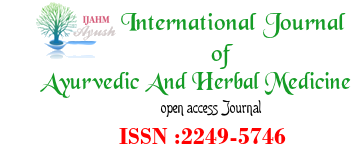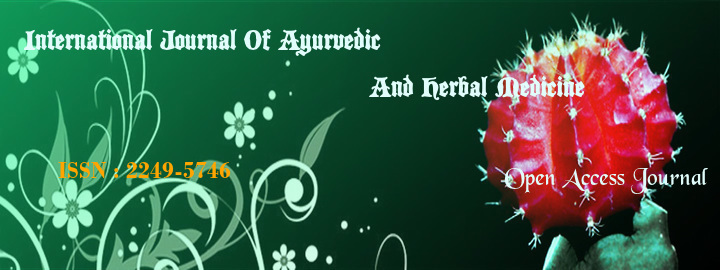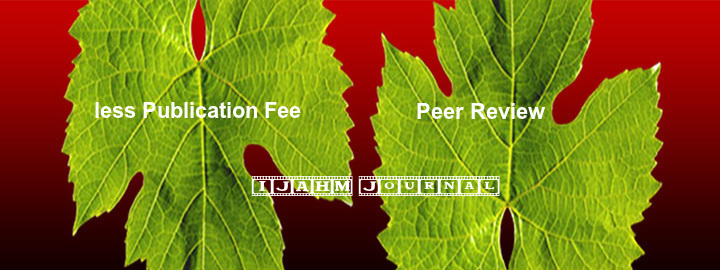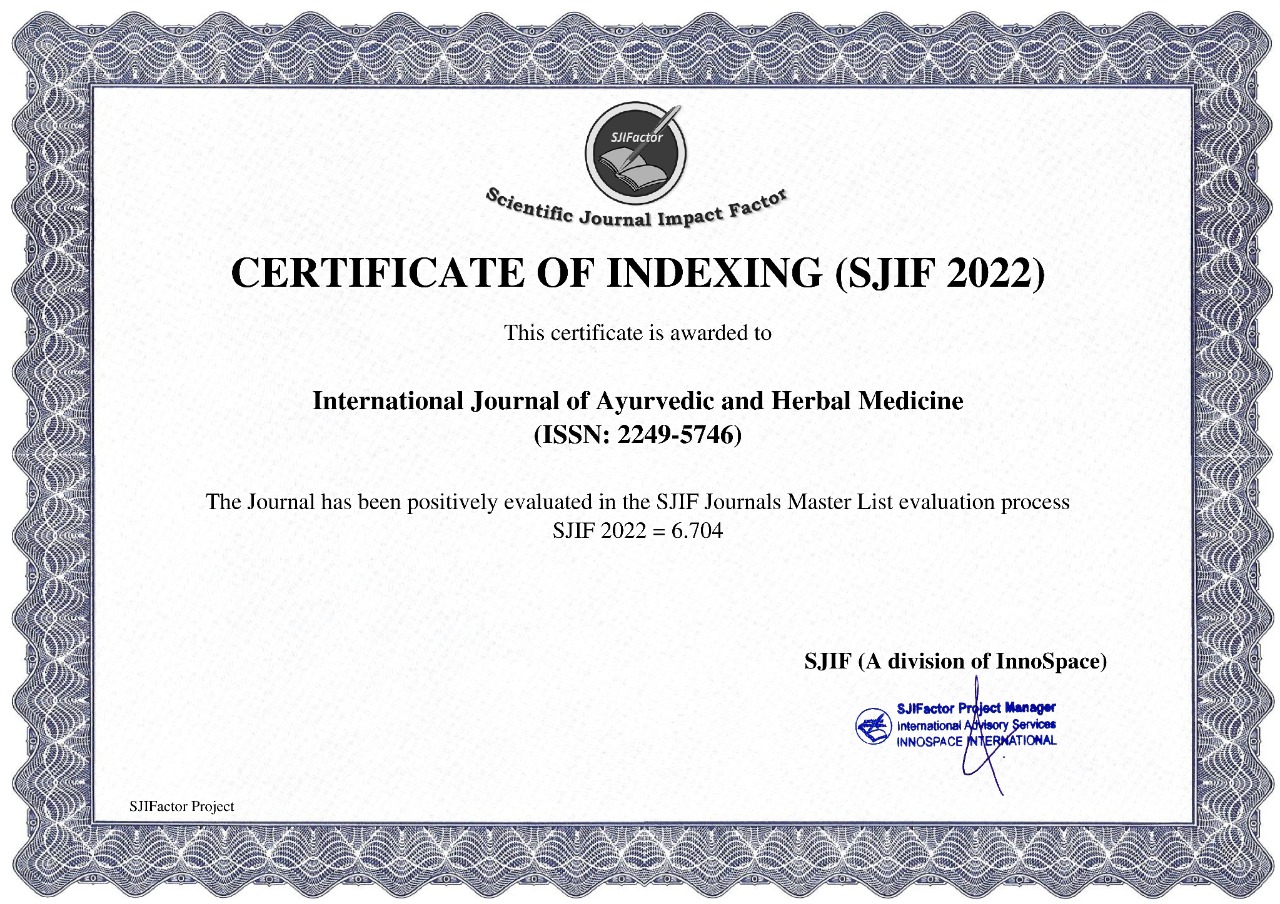


1Akhani Shivakari Maheshbhai , 2Dhyan Surendranath , 3Nilesh Suryavanshi.
DOI : http://dx.doi.org/10.18535/ijahm/v7i5.05
1 MD Scholar, Department of Rasashastra and Bhaishjya Kalpana, D.Y. Patil School of Ayurveda
2 MD, Assistant Professor, Sri Sri College of Ayurvedic Science & Research,Bangluru
3 MD, Associate Professor, D.Y.Patil School of Ayurveda, Navi Mumbai, Maharashtra, India
Corresponding Author – Akhani Shivakari Maheshbhai
Address – 5/6, Ramkrishna Apts, St. Francis Cross Road, Off. S.V. Road, Vile Parle (West), Mumbai – 400056.
ABSTRACT:
Background: The study was carried out with an objective to investigate the antibacterial activity of Viparita malla Tail. The aim of the study is to assess the antibacterial activity & determine the zone of inhibition of Viparita malla Tail on a bacterial strain.
Methodology: Preparation of Viparita malla tail was performed as described in Vangasena Samhita 79/59-60. Antibacterial activity was seen using Agar Cup Diffusion Method and Minimum Inhibitory Concentration(MIC) was determined using Resazurin assay.
Result: Results showed that Viparita malla Tail exhibited a significant activity against clinically relevant bacteria
Conclusion: Viparita malla Tail may be useful in the clinical management of bacterial infections, justifying future clinical trials to validate their use in therapeutics.
Keywords – Viparita, Viparita Malla, Viparita Malla Taila, Malla Taila, Antibacterial Activity.
Reference:
1. Tripathi PH. Agantuka Vrana Adhikara 79:59-60. Vangasena Samhita with “Hari” Hindi Commentary. Varanasi: Chaukhamba Sanskrit Series Office; 2009. p. 851.
2. Vipareeta Malla Taila in the management of diabetic ulcer: A case report
3. Dhyan Surendranath http://ijam.co.in/index.php/ijam/article/view/07382016
4. Diallo D, Hveem B, Mahmoud MA, Betge G, Paulsen BS, Maiga A: An ethnobotanical survey of herbal drugs of Gourma district, Mali. Pharmaceutical Biology. 1999, 37: 80-91.
5. Ncube NS, Afolayan AJ and Okoh AI, Assessment techniques of antimicrobial properties of natural compounds of plant origin. Current methods and future trends. African J Biotechnology..(2008):7; 1797-1806.
6. Vinoth S,Rajesh kanna P Gurusaravanan Pand Jayabalan N,Evaluation of phytochemical, antimicrobial and GCMS analysis of extracts of Indigofera trita L.F . Spp. subulata (vahl ex poir ) .Int J Agri Res(2011); 6(4) : 358-367.
7. Savithramma N, V enkateswarlu P, Suhrulatha D , Basha SKM and Vekatramanadevi CH, Studies of Boswellia ovalifoliolata Bal and Herny – An endemic and endangered medicinal plant . The Bio sc., (2010); 5: 359-362
8. B. Mahesh and S. Satish , Antimicrobial Activity of Some Important Medicinal Plant Against Plant and Human Pathogens World Journal of Agricultural Sciences 4 (S): 839-843, 2008
9. J. Lambert and N. Vietmeyer, 1996 Medicinal plants: An expanding role in development World Bank Technical Paper. No. 320.
index























